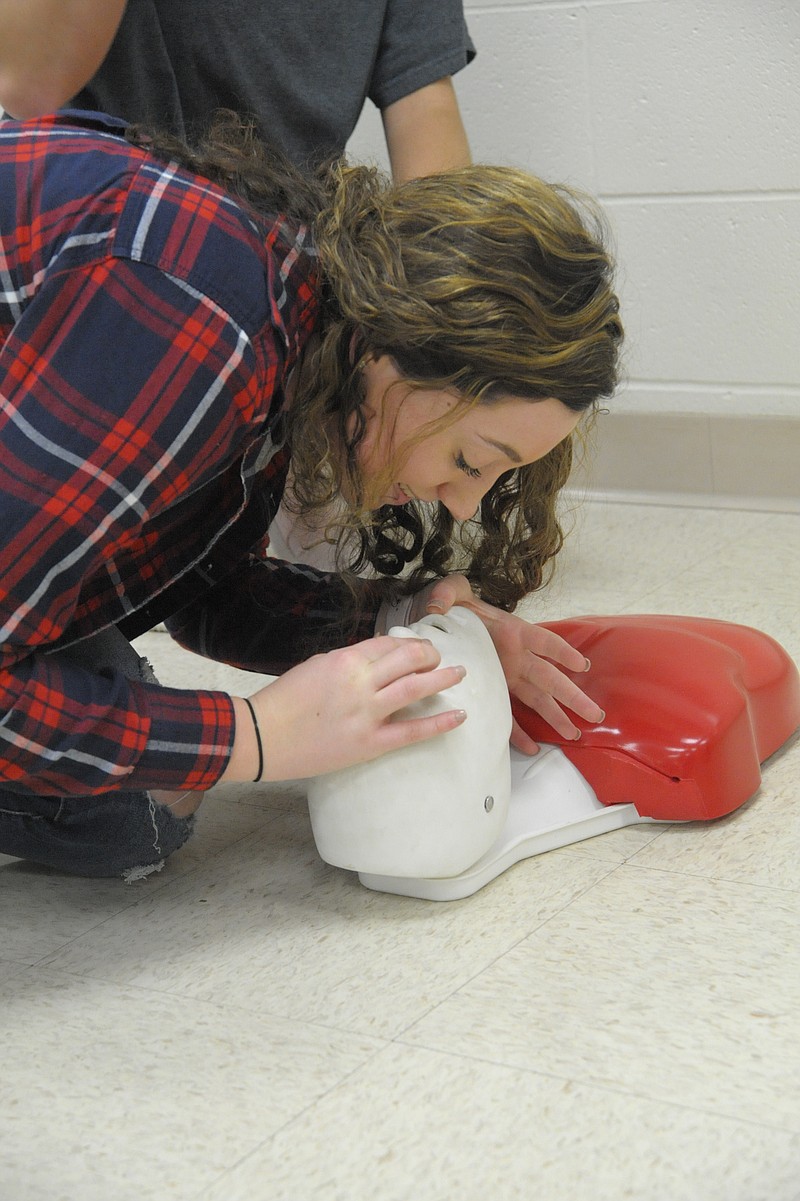Training in cardiopulmonary resuscitation has been part of high school health curriculum for years.
As the one-semester health course and its curriculum are required by the Missouri Department of Elementary and Secondary Education, so has been the CPR education.
By an act of the Missouri legislature, schools now are required by law to report that every student has received the training.
"The only thing different is we have to report it," California High School teacher Julie Bailey said. "We've always taught it in the health curriculum."
The health course is taught during the sophomore year.
That is particularly helpful for students who go on to become lifeguards, as they are required to have CPR and First Aid training for certification.
Chloe Schenewerk and Zoe Edwards learned CPR in the school health class and benefited as they are lifeguards at the California City Pool, as well as the country club.
"It saves lives," Schenewerk said.
And the Missouri State High School Activities Association also has required all coaches at all levels to be CPR and First Aid certified. California schools provide the training during the teacher work days in August, prior to classes beginning.
Having exposed an entire generation to CPR basics could help in an emergency situation.
"Emergency responders may take minutes," Bailey said. "Someone needs to perform CPR to keep them alive until then."
The act of performing the chest compressions is physically taxing.
So, having more people with CPR knowledge, mean when someone gets tired another can take their place, she noted.
In Bailey's classroom, every student not only receives the CPR information; she tests them on a manequin for proper technique.
Granted, not all teenagers may take the class seriously at the time, she said. But, hopefully, if they're ever in an emergency situation, some of the knowledge may come back to them.
"Having any knowledge makes you better off," Bailey said.

